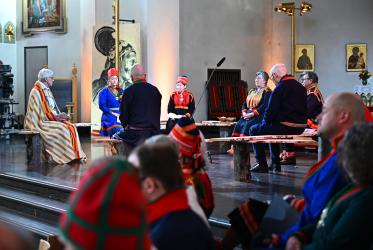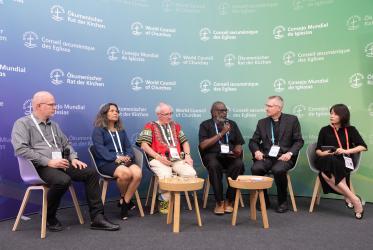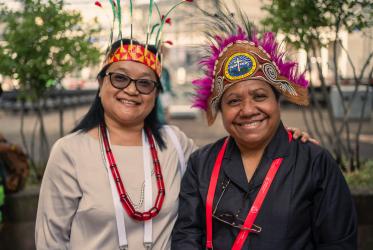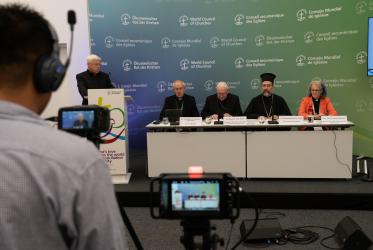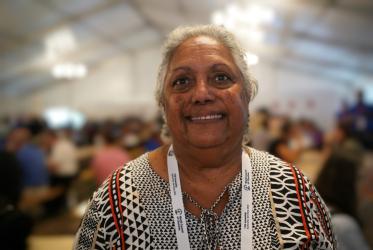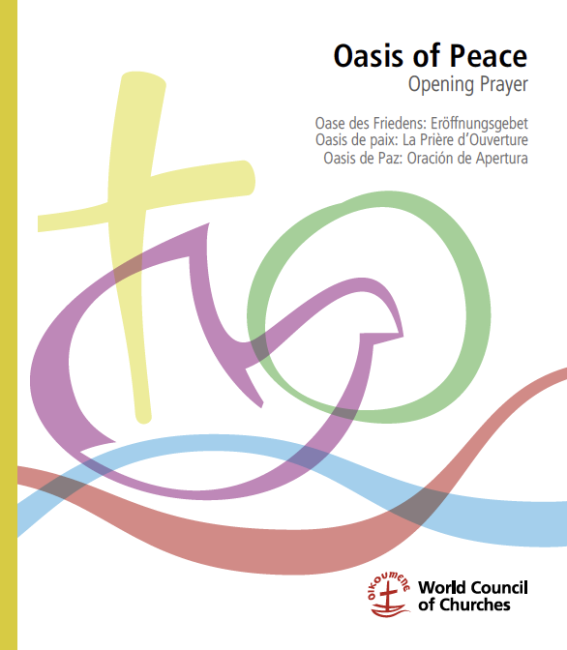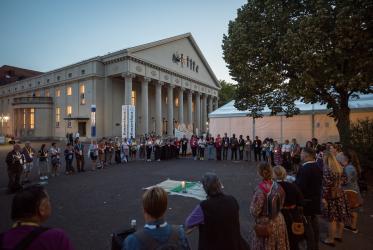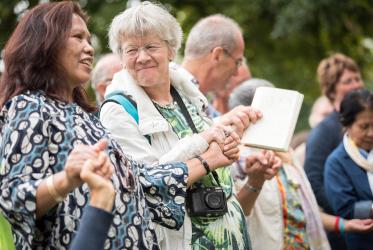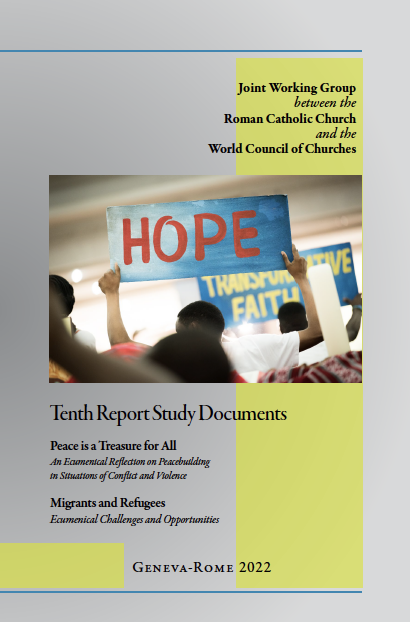Displaying 101 - 120 of 1063
04 November 2022
Church of Sweden apologizes to Sámi people, this time in Sápmi
27 October 2022
Christ’s Love (Re)moves Borders – GETI 2022 in images
13 September 2022
Indigenous women struggle for identity in Asia and beyond
05 September 2022
Oasis of Peace Opening Prayer
30 August 2022
A Hundred Years of Mission Cooperation
The Impact of the International Missionary Council 1921-2021
21 August 2022
Together in the Mission of God
Jubilee Reflections on the International Missionary Council
21 August 2022
Tenth Report Study Documents
19 August 2022
Walking, Praying and Working Together
10th Report of the Joint Working Group of the WCC and the Roman Catholic Church
18 August 2022

